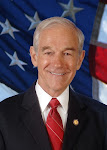By Douglas Kohn
Kohn@Fordham.edu
Anyone who has spoken with me at length on the subject knows that I am highly skeptical of unfettered free trade. There is no question that if you take the world as one economy, free trade increases productivity, creates jobs and new wealth.
But for all the talk of the world economy, it does not exist in the manner many academic economists believe it does. Nations have competing interests and sometimes the growth of one nation comes at the expense of another. In a manner of speaking I am a cautious economic nationalist, as I am for America, first, last and always.
President Obama’s latest imposition of tariffs on Chinese tires worries me greatly, however. I believe that a proper tariff regime can only be imposed on world trade during times of economic growth. Smoot Hawley has taught us that to protect industries during recession is disastrous, but history has also taught us that some of America’s greatest periods of economic growth took place under a tariff system.
America’s capitalist economic formula was engineered by our founding father Alexander Hamilton, first Secretary of the Treasury. He knew that manufacturing was necessary for economic advancement, and that only with a large domestic market protected from foreign goods would America be able to thrive. Tariffs would enable us to keep taxes low on the people that produce our food, goods and services.
That being said, tariffs and national banks (another Hamiltonian policy) were not enshrined in the Constitution and therefore are guidelines for the future, not unbreakable law.
In my own observations I have come to conclude that free trade with nations that do not have labor or environmental standards is folly (though I would make some exceptions), but that free trade with some nations would be mutually beneficial and create unprecedented wealth and opportunity. For example, if the United States was to sign a Trans Atlantic Free Trade Agreement with the European Union, we would see the creation of vast amounts of new wealth and opportunity, coupled with greater competition to keep down prices between nations that cannot undercut each other’s economic advantage through abuse of the labor force.
However, the trading regime with China cannot be allowed to continue. The problem is, when it comes to policy regarding China, timing is everything. Right now the world looks to China to help resuscitate trade and economic growth. The United States especially needs China to keep buying our debt until such time as we are able to cut expenses and pay it down.
After such time, America should take a more nationalist approach toward China as we did in 2005 when CNOOC, the Chinese government’s main oil producer, tried to acquire American oil producer Unocal. This was particularly troubling because it was not independent investors that were trying to acquire American oil resources, but an arm of the Chinese government. Between that and nationalist currency manipulations, China has behaved in a manner that suggests it is trying to steal American industry.
A tougher line must be towed but when the timing is right.






No comments:
Post a Comment